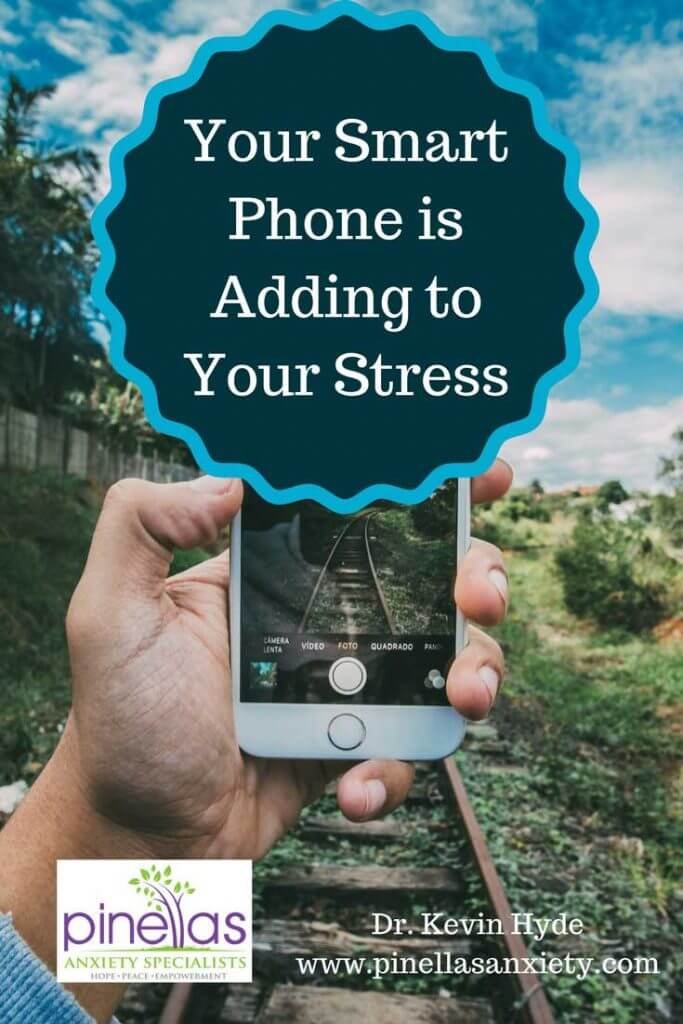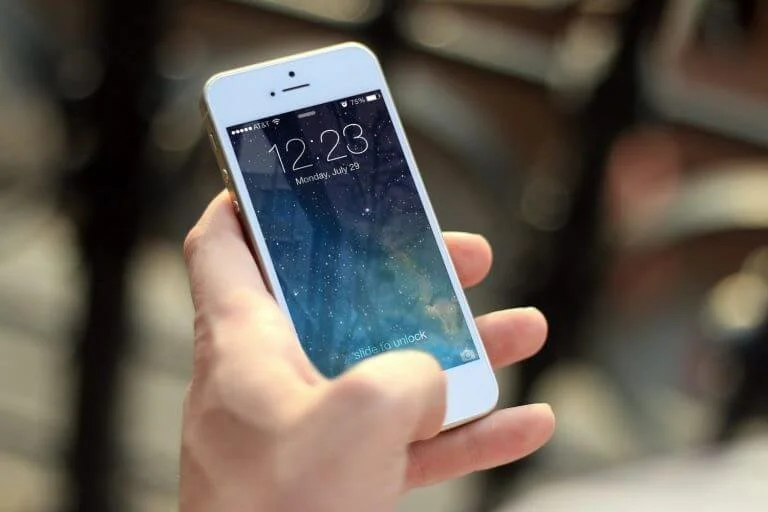The Do Nothing Challenge
We constantly feel pressured to add things to our schedule. Society seems to reward being busy and punish anyone who takes time for themselves. No wonder so many people neglect their own self-care when it would lead to negative judgments from others!
You’re encouraged to work too much, schedule your kids in too many activities, and attend too many social events.
Everything FEELS so important.
How will your son ever play varsity baseball if he doesn’t play every season after the age of 5? What will your friends think if you tell them you’re taking some time for yourself?
And when you do have down time, I’m guessing it’s spent keeping up with social media, reading the news, or engaging with your phone in some way. I know this struggle personally!
We constantly feel pressured to add things to our schedule. Society seems to reward being busy and punish anyone who takes time for themselves. Moms are expected to put the family above all else. No wonder so many people neglect their own self-care when it would lead to negative judgments from others!You’re encouraged to work too much, schedule your kids in too many activities, and attend too many social events.Everything FEELS so important.How will your son ever play varsity baseball if he doesn’t play every season after the age of 5? What will your friends think if you tell them you’re taking some time for yourself?And when you do have down time, I’m guessing it’s spent keeping up with social media, reading the news, or engaging with your phone in some way. I know this struggle personally!
Why do we feel this need to fill every minute of our schedule?
1. Society has taught us that doing nothing means we’re lazy.2. We only feel good about ourselves when we’re productive and checking things off our endless “to-do” list.3. We see everybody else doing it, so that means we should too.4. Engaging in activities, even pointless activities, can keep us distracted from emotions like sadness, anxiety, or guilt. And if we just keep on doing, maybe those emotions will even go away.5. We’ve never learned how to do nothing so it’s uncomfortable.
Consequences of Doing Too Much
No matter what the reason for staying busy, the research has shown that little good comes from it. The chronic stress of always being on the go can lead to physical illness and diminished mental health.It’s probably no surprise to you that it can also lead to feeling exhausted and overwhelmed… All. The. Time.We always feel behind and never actually catch up. The to-do list seems to get longer even as we’re being productive.That busyness can interfere in relationships as well. How many times have you neglected date night because of the kids’ activities? Is quality time with your children spent mostly in the car?Relationships are unbelievably important to our health so consider whether you’re spending quality time or quantity time with those people you value the most.
Giving Yourself Permission to Do Nothing
We often jokingly challenge our 3-year-old daughter to quiet contests. At times it feels like the only way to get her to stop talking! And let me tell you, it’s a challenge for her even when it’s only for one minute.I’m going to offer you a similarly difficult challenge. When you’re done reading, or another time today that’s more convenient, force yourself to do nothing for five full minutes. It may sound easy on paper, but I’m betting it will be a true challenge in the moment.Use those five minutes to focus on your breathing. To notice things in the world around you that you typically take for granted. Scan your body and notice if there are any sensations, pains, discomforts, or tensions. Sit in stillness without the pressure of doing.Doing this for a few minutes every day can have surprising benefits to your physical and mental health. No, it won’t make all your stresses or anxieties disappear, but it’s one small piece of self-care that can help you begin to take back control of your life again.If you're feeling the stress of always being on the go and need a little help to slow down and overcome those challenges, please reach out and schedule a free strategy call. I have a few slots open in my practice and I'd love to help you reach your goals.Don't wait, start here
Are Kids Like an Ancient Torture Device?
The answer is yes. Or no. Or it depends on the day?
Okay, so this one might get me into big trouble. Let me start out by saying that kids are awesome and I love my two little munchkins more than anything.
Now that that’s out of the way… are kids like Chinese water torture?
If that question horrified you, I apologize. It’s just a comparison that popped into my head one morning as my un-caffeinated brain was trying to keep our girls occupied when they had woken up way before the sun.
Are Kids Like an Ancient Torture Device?
The answer is yes. Or no. Or... it depends on the day?Okay, so this one might get me into big trouble. Let me start out by saying that kids are awesome and I love my two little munchkins more than anything.Now that that’s out of the way… are kids like Chinese water torture?If that question horrified you, I apologize. It’s just a comparison that popped into my head one morning as my un-caffeinated brain was trying to keep our girls occupied when they had woken up way before the sun.Most of us are mature enough to admit that we can love our children very much despite them being overwhelming, and stressful, and worry-inducing at times.There are moments they absolutely melt your heart, and then there are the times you wonder why anybody would ever willingly have more children. Sometimes those moments are literally 10 seconds apart.
What is Chinese Water Torture?
Chinese water torture is an ancient torture method where you are restrained so you can’t move and then you’re placed below a device that slowly drips water onto you.Doesn’t sound so bad, right?On a hot day, this might even sound pleasant! Who wouldn’t want cool, refreshing water during the heat and humidity we experience from May to October?And in this torture, a few drips aren’t a problem. They don’t hurt. It’s not like it’s drowning you. Nobody is poking you with anything.You. Just. Can’t. Move.After some time passes, you begin to have some discomfort. Maybe a drip caused an itch. Well, you can’t move to satisfy the itch so your mind just focuses on it.After enough time passes, you realize that you have no control over your environment.Eventually, it gets to the point where you go mad because you just want the water to stop dripping on you. It will never stop until the higher powers decide to stop it.Your lack of ability to control your surroundings can actually make you go crazy.
How does this apply to our kids?
During my brilliant, or crazy, morning epiphany, I arrived at this comparison because I didn’t find any single aspect of parenting to be rocket science. Yet the entire thing could be maddening.We have two girls under the age of four. Our oldest is only now starting to get into the “why?” phase, so I still haven’t even had to try and explain the meaning of the universe.I don’t need to run into burning buildings to save people. I don’t need to solve impossible mathematical equations.Overall, it’s not that hard to meet their needs… right?I mean I just plop some food down in front of them during the appropriate times. Ensure they’re drinking enough. Make sure all potty aspects are addressed. And watch them closely enough that they don’t do something to seriously harm themselves or burn the house down. It sure sounds easy enough… of course, the devil is in the details!Having one drip of water going down your face isn’t a big deal, but the inability to control your environment literally makes you go crazy after enough time passes.
My big realization was that while no one aspect of raising kids requires a college degree, you, the parent, have lost most of the control you once had over your life.
I was feeling such frustration that morning that I didn’t know how to explain. The kids weren’t doing anything defiant. They were actually playing pretty nicely together, so why did I feel so agitated?My ability to control my day was gone. I could not sleep in if I wanted because these kids needed me to watch them. I couldn’t watch an episode of Parks and Rec or read a book.It finally dawned on me that once you have kids, all those little things the kids require quickly add up to something that can be pretty overwhelming. You have a new boss who has taken control.And if we as parents don’t do something, we too can go mad just like the person subject to Chinese water torture.
How do we Avoid Going Crazy as Parents?
Here are 3 things you can do to avoid going crazy from lack of control.
Schedule self-care activities It’s important that we don’t let our kids completely define our identity. You were a person with interests and hobbies before kids, and it’s crucial that you find some way to stay connected with the previous you. Even as a single parent, there are creative ways to find some time for yourself.
Remember your values While I discussed the overwhelming nature of having so little control even though what you’re doing on a daily basis isn’t “difficult,” that perception of overwhelm can be reduced by stepping back and looking at the bigger picture. I bet you have designs on your children growing into well-rounded, productive adults someday? Knowing those factors is identifying your values. I know for me it’s maddening to feel stuck communicating at a 3-year-old level all day, but remembering that every little bit of teaching and modeling of good behavior is helping Mary develop into that future adult helps me stay grounded.
Find little winsTo help yourself believe those little things are working towards the long-term goal, it’s helpful to look for small wins along the way. If your kid didn’t hit her sibling in frustration when she would have one week ago, give yourself a pat on the back. If your son remembered to flush after using the bathroom, give yourself (and him) a big high five. Recognizing those periodic victories is helpful to prevent you from feeling burnout like the movie Groundhog Day. There is always progress, it may just be slower than you would like.
So, to wrap up, I’d appreciate if you didn’t tell all your friends that this weird psychologist guy said that kids are terrorists who torture us. But maybe you can share this blog post with them, so they can get some context to go along with the click bait title 😊If you’ve been struggling and feeling like the kids are running the show, please reach out for a free strategy call. I would love to hear about your struggles, and help you see that there is hope. I have a few spots available in my Palm Harbor therapy office, so please give me a call at 727-498-1809, or click the link below to schedule.
5 Easy Self-Care Tips for Busy Moms
Everybody knows that moms are stressed and busy. Whether it’s staying at home and juggling watching the kids while keeping the house functioning.
Or if it’s trying to spend quality time with the kids while also maintaining a job. There’s nothing easy about parenting, and we all end up carrying way more stress than we’d like.
When silly psychologists like me suggest adding in self-care, it’s easy to laugh us in the face because “ain’t nobody got time for that”.
That’s why I decided to put together 5 easy self-care activities a busy mom can fit into her schedule.
-
Visit the beach
-
Visualization
-
Use a gratitude journal
-
Exercise
-
Mindful drive
Everybody knows that moms are stressed and busy with little time for self-care. Whether it’s staying at home and juggling watching the kids while keeping the house functioning.Or if it’s trying to spend quality time with the kids while also maintaining a job. There’s nothing easy about parenting, and we all end up carrying way more stress than we’d like.When silly psychologists like me suggest adding in self-care, it’s easy to laugh us in the face because “ain’t nobody got time for that”.That’s why I decided to put together 5 easy self-care activities a busy mom can fit into her schedule.
Visit the beach
Visualization
Use a gratitude journal
Exercise
Mindful drive
Visit the beach: Self-care for the family
Earlier this week our family had an impromptu beach trip. My wife was frustrated she got cancelled at work, and the stuff I worked on ended up being really annoying and I didn’t actually accomplish anything for all my efforts.If we stayed home, I’m sure we would’ve gotten on each others nerves and probably snapped at the kids a few times. Instead, we packed the kids into the car and went to the beach at Sand Key Park.It’s easy to take for granted that we live minutes from beaches that people will spend hundreds of dollars on travel and lodging to visit.I mean Clearwater Beach has been named the top beach in the country several times! We have the Dunedin Causeway beaches where you can actually drive onto the beach and park your car so you don’t need to lug things a quarter mile while making sure the kids don’t run off.So of course this involves putting together all the beach stuff and getting sun block on the kids. But there’s something about being with nature that is inherently relaxing. While there, make sure you take a few moments to truly feel and enjoy the sun, the breeze, the feel of the water on your skin. The water is nature's self-care.Those mindful moments can undo more stress than you’d imagine.
Visualize your relaxing place
If you aren’t able to actually visit the beach, finding a couple minutes to visualize your relaxing place can bring about a relaxation response.Close your eyes, take a couple deep breaths, and use all five senses to put yourself in your favorite calming setting. It could be a cabin in the woods, laying in a field of blue bonnets, or swinging in a hammock.The most important thing is to imagine the sights, sounds, smells, tastes, and sensations you would have if you were actually there.It may sound silly, but doing this actually lights up the same parts of the brain as when you’re physically in the situation! It’s the reason you see golfers pausing before they take a difficult shot. Visualizing themselves hitting the perfect shot is almost as good as taking a practice swing.Visualization is self-care you can do from the comfort of your own home.
Use a Gratitude Journal
Have a journal handy or a note app on your phone where you can write down a few things you are thankful for. During those stressful moments when the kids aren’t listening, it’s easy to focus on just how overwhelming and impossible motherhood is.When you get hooked into that state of mind, everything your kids do will just be another frustration adding fuel to the fire.Pausing to write down 3 to 5 things you’re grateful for in life (be specific) can help prevent your mind from going down that negative path. Even in the most difficult moments of our lives, we can often find ways to feel blessed.
Exercise
Self care helps moms cope with stress
No you shouldn’t leave your kids at home without supervision to go for a run, but you can include the kids in a 5 minutes of craziness exercise routine.Put on some tunes and have a dance party. Set a timer and have the kids run around being as loud as they can while you do jumping jacks or run in place. Do a few laps around the backyard while counting how many steps it takes, or noticing any wildlife.Doing this can both help you re-center yourself, but also it can actually help kids calm down a bit if they’ve been hyper.A lot of kids need to “speed up to slow down.” Just asking them to calm down doesn’t work, but physical activity sort of burns off the energy so they are more focused and easier to work with afterwards.This is one of our go-to methods to occupy the kids. We have a playlist built on YouTube with fun songs like the Witch Doctor, Hakuna Matata, and What Does the Fox Say (ugh) that we stream to the TV through our Chromecast.It auto-plays, so we can actually get some cleaning done while they’re dancing. More often than not though, we’re all twisting and jumping around together with lots of smiles and laughs. Self-care and entertaining the children... heck yeah!
Take a Mindful Drive
Self care for busy moms
I can’t claim credit for this one, it was my lovely wife who found it useful a couple weeks ago.The kids were getting on her nerves and they couldn’t go outside because of the weather, so she packed them into the car.Our youngest was occupied with a snack, while our 3-year-old found it was fun to pretend nap… until she saw the peacocks in Dunedin.Didn’t know that was a thing, but they all enjoyed watching the peacocks roam for awhile in relative peace and quiet!When people think of mindfulness, they often think of meditation. Of course, busy moms will say, “ain’t nobody got time for that.” But there is much more to mindfulness than meditation.All you need to do is focus on what’s around you in the present moment. Again, hard to focus when the kids are loud, but many kids who are going crazy at home will settle down for at least a few minutes in the car.Loading the kids up for the sole purpose of driving can be a short break for a busy mom.While you’re driving, instead of listening to music or talking to your kids while you’re frustrated, try noticing the beauty of your surroundings. Focus on the trees, the clouds, the feel of the steering wheel in your hands.Being in the present moment, mindful of what’s around you helps to calm the intrusive thoughts that are so often the cause of frustration or low self-esteem.The more often you’re able to practice being mindful, the more benefits you’ll notice in your daily life.Hope those five tips will help you during those frustrating times we all experience when watching the kids we love.If you think that they aren’t enough to really help you deal with the chronic underlying stress, please reach out for a free consultation. I’d love to chat with you about how your life could look. I currently have a few openings for new patients if we're a fit.Call me at 727-498-1809 or use the button below to schedule a consultation call.
Why I Help Moms
When I tell people that I specialize in helping moms, I’ve occasionally been asked why. I think the fact that I’m a guy makes it seem a little strange.
It’s true. I can’t hide the fact that I’m a dude. A father. Distinctly NOT a mother.
I mean, I have a mother, and my wife is a mother. But that’s not really the reason why I focus on helping overwhelmed moms overcome stress, anxiety, or depression.
Of course I’ve always had tremendous respect for mothers.
You are expected to do the job of 7 people while keeping a smile on your face and looking pretty to boot.
It’s impossible.
When I tell people that I specialize in therapy for moms, I’ve occasionally been asked why. I think the fact that I’m a guy makes it seem a little strange.It’s true. I can’t hide the fact that I’m a dude. A father. Distinctly NOT a mother.I mean, I have a mother, and my wife is a mother. But that’s not really the reason why I focus on helping overwhelmed moms overcome stress, anxiety, or depression.Of course I’ve always had tremendous respect for mothers.You are expected to do the job of 7 people while keeping a smile on your face and looking pretty to boot.It’s impossible.My respect grew even more during my experience while training to be a psychologist.
PAST EXPERIENCES WITH PATIENTS
There was a group of patients that I would leave session feeling like I learned at least as much as they did, if not more.That their strength in the face of adversity should be a beacon of hope for anybody going through a challenging time.This group always made the difficult work feel worthwhile.There were tears, and every single one was worth it. We had laughs, and every single one was earned.There was progress and setbacks, and every step of the way made me feel proud to be working with these patients.When I decided to open my own practice and was thinking about where to focus, it was pretty easy to figure out the commonality in those patients that I most enjoyed working with.They were mothers.
THE CHALLENGE OF MOTHERHOOD
Moms feel pain, but often can’t express it because it’s their job to keep the family happy.They feel overwhelmed, but they need to keep the trains running on schedule.Mothers worry about their husband and their children, but they do their best to be encouraging to ensure everyone else thinks positively.It’s unfair for moms to shoulder this burden alone.I hear about spouses that try to provide solutions instead of validation. Spouses who don’t recognize that anything is wrong because moms can be amazing actresses.So many mothers cannot find a safe place to get the support they need to continue doing that job well.That’s where I come in.It’s my mission to provide a safe, comfortable place where moms can receive validation and guidance on how to overcome the stress, anxiety, worry, or depression that is sapping their joy.You deserve to feel joy.
You deserve to enjoy being a mom, a wife, a woman.
HOW I CAN HELP
The first issue when working with any patient is learning that there is hope. After things have been going wrong for so long, it’s often hard to imagine that things could ever be better.While struggles are common, the fact is that many mothers are able to find their own way to balance family, work, social life, relationship, etc.You can too!It’s a matter of working together to figure out exactly what it would look like in your case, and it’s my job to help you see pretty early on that A) it can happen and B) understand the roadmap we can take to get there.Once you see that a better life is possible, then we can get into the nuts and bolts of turning things around. It’s hard to give a step by step of what this looks like because it’s different for every patient… because every patient is unique and has different life experiences.In general, we’ll work together to help you identify the things in life that are important to you (your values). We’ll see where things are going well and where you’re not quite meeting your own expectations.We’ll help you to develop coping skills (e.g., deep breathing, relaxation, dealing with negative thoughts, etc.) to make the times you feel overwhelmed a little bit easier to tolerate.We will work to create new relationships with difficult thoughts, so you can focus on the things you enjoy rather than always being distracted. This typically has the added benefit of improving self-esteem since those voices so often make us feel bad about ourselves.We will identify where fear is shrinking your life, and help you build the confidence to grow your comfort zone.Throughout, we will brainstorm and problem solve to overcome any obstacles that are getting in the way of progress.I cannot promise successful treatment, but I can promise that I’ll be alongside you every step of the way, working at least as hard as you.
You deserve to feel joy.
To feel peace.
To enjoy your family.
If you’ve been struggling for too long and are ready to see how things can be different. Consider scheduling a free consultation. I’d love to chat with you about how working together could help. And if we’re not a good fit, I’ll provide references to someone who is better able to help.I have a few openings for new patients in my Palm Harbor counseling office, so if you’re ready to start the path towards enjoying life again, reach out today.
Stress: How Smart Phones Are Ruining Your Life
It’s 3am. You’ve been lying in bed for 15 minutes after your overnight trip to the bathroom. It hits you. The urge to see what’s been posted to Facebook, Pinterest, Twitter, Instagram, or whatever social media platform you belong to.
It’s 3am. You’ve been lying in bed for 15 minutes after your overnight trip to the bathroom. It hits you. The urge to see what’s been posted to Facebook, Pinterest, Twitter, Instagram, or whatever social media platform you belong to.You can tell you’re not falling asleep right now, so what’s the harm in spending 10 minutes on the phone while you get tired? Suddenly it’s 4am and you woke your partner after laughing at a funny YouTube cat video. Oops.If you resemble this story, you aren’t alone by any stretch of the imagination. According to Statista, there are over 2 billion smart phone users across the globe and that includes 77 percent of Americans. According to eMarketer, the average user spends approximately 4 hours on their phone every day.Smart phones make it easier than ever to keep up with old high school friends, find a new recipe for dinner, or learn how to change your own oil. Unfortunately, the ability to have all the information in the world at our fingertips also comes with some drawbacks such as poor sleep, addiction, and even anxiety.
Smart Phones Impair your Sleep
As in the example above, who hasn’t checked their phone during an overnight awakening? This habit could be costing you valuable sleep time!Smartphones emit blue light. Blue light is the same type of light provided by the sun, which is interpreted by our brains as, “time to be awake doing things!” That’s not exactly the message you want to be sending your brain in the middle of the night.That’s why it’s recommended that you put down your smartphone an hour before you intend to fall asleep and do not check it in the middle of the night. Ideally, it’d be in another room, but we all know that isn’t happening.Try and maintain a consistent bedtime routine that involves calming activities and cut out devices that emit blue light in favor of books, magazines, kindle, music, etc.
Smart Phones Demand Your Attention
With the prevalence of dinner table phone-checking, some families and friend groups have resorted to making a game out of not touching their phones. The first person to reach for their phone picks up the entire check.This game could sound fun to you if you’re a bit older, or it could be torture for you if you’re a millennial. In any event, the purpose is to encourage conversation and remaining in the present moment with your dinner party.It’s not unusual for our family to all be in the same room together, with each person captivated by their individual device. While reading the latest updates around the world, we are missing out on life in the present moment.Aren't the family, friends, and others around us worth our focus?
Why Can’t We Put the Phone Down?
Every time we see a new notification, get an e-mail, or read the latest news, our brain emits a hit of dopamine. Dopamine is the feel-good chemical in the brain that we enjoy while doing something pleasurable.It’s also what drug addicts are searching for when they use more and more of their drug of choice. That's right, smartphones provide some of the same addictive properties as illicit drugs!Thankfully you don’t need to be out on the street at 3am to get your hit, but smartphone addiction can still negatively impact your life.
The Smart Phone Diet to reduce stress
Just like someone addicted to drugs or alcohol can find ways to cope and live a full life, you too can find ways to reduce the impact of smartphone addiction.But first, you may want to take a few minutes just to think about how your smartphone use is impacting your life.If you’re one of those who is struggling in relationships because one or both of you are always on the phone, or if you’re losing sleep because you need to know what’s going on in the world, then these tips can help free you of the burden from smartphone addiction.
Schedule screen-free timeHave one day a week be dedicated to present moment awareness. Keep the phone on the charger and enjoy a day with your family and friends, free of the smartphone distraction. Use this time to notice the beautiful little things in life, and to have meaningful conversations that deepen relationships.
Delete apps that hook youIf you know that Facebook is the app that always has you reaching for the phone, delete it. You can always re-download it, but that process will take a few minutes and you might decide it isn’t worth it right now. You might even choose to take a longer break from that app and see how it affects your life. A few times I’ve given up Twitter for lent, and somehow, I survived. You can too!
Make it difficult to access during times you need to focusWhen you have a task that needs your focus, it’s too tempting to have your phone in your pocket. Every interruption takes approximately 25 minutes to recover from when trying to re-focus. You can avoid this problem by having your phone someplace difficult to reach during your focus time.
Ask for helpHaving an accountability partner can be so helpful in breaking free. You may not even realize when you pick up the phone because it’s an ingrained habit, but your partner, kids, or friend can point it out to you. Your desire to change may even prompt your loved ones to try it as well!
Now that you’ve given yourself some space from that constant urge to reach for the phone, you can find positive ways to fill the extra hours in your day.Rewarding yourself by engaging in meaningful activities will be the best decision you ever made. Think about it, on your 80th birthday will you be reflecting on all those Facebook statuses you read, or the quality moments you had with your family?It’s never too late to begin to add more of those valuable memories you can cherish for a lifetime.If you've been struggling with addiction to your smart phone, or aren't sure why you're feeling so overwhelmed with stress, please reach out for a free consultation. I'd love to chat with you about what you can be doing to start taking control of your life again. I have a few spots available in my practice, so if we're a good fit, we can discuss what that would look like.
Address Physical Symptoms of Anxiety
I was featured recently in an article on how to address physical symptoms of anxiety. You can check out the full article in Bustle. Here's a snippet:
I was featured recently in an article on how to address physical symptoms of anxiety. You can check out the full article in Bustle. Here's a snippet:
“Deep breathing can be a very quick, and effective way to stop an anxious response before it accelerates. “During moments of anxiety, your brain’s fight-or-flight mechanism is activated,” Kevin Hyde, licensed psychologist tells Bustle.”
The article features many other techniques as well, including:
- Add self-care into your daily routine
- Take a pause to notice your thoughts
- Avoid caffeine, nicotine, and other substances that are intended to give you energy - they often fuel our anxiety response
- Engage in acts of kindness towards others, and yourself!
If you're interested in discussing how to work these strategies into your life to help address your stress, worry, and anxiety, please reach out for a free consultation. I'd love to chat with you so you can see what your life could look like when you start to take control again. I have a couple slots open in my practice if we decide we're a good fit.
This is Us - Lessons from William Hill
My wife and I are a little late to the game in discovering the NBC show This is Us (we rarely get to watch TV due to having a couple little ones), but we finally started watching. As with the rest of America, we’ve been captivated by the family dynamics, and the obvious affection the characters have for each other. In particular, I fell in love with William. The biological father that Randall finally just met at 36 years of age, and at a time when William is already in the end stages of cancer.
This article has spoilers from the show This is Us. If you don’t wish to know events from later in the series, please stop reading here.My wife and I are a little late to the game in discovering the NBC show This is Us (we rarely get to watch TV due to having a couple little ones), but we finally started watching.As with the rest of America, we’ve been captivated by the family dynamics, and the obvious affection the characters have for each other. In particular, I fell in love with William.The biological father that Randall finally just met at 36 years of age, and at a time when William is already in the end stages of cancer.The portrayal of William, a former drug addict who dropped his newborn baby off on the doorstep of a fire station, gives humanity to a person our society would often shun.We don’t give many drug addicts a second chance. Someone who gives up a baby can’t be trusted.An elderly person in the final stages of cancer is typically hidden away in a nursing home so we can avoid the discomfort of watching them die.I couldn’t help but learn a few lessons from his story, and the insights he provided into the process of dying.
Small Kindnesses Have Large Impacts
After William’s death, Randall is struck by the emotional reaction from people he’s known for years, but barely knew. The mailman dropped off a package and inquired about William, and Randall shared the news of William’s recent passing.Randall appears dumbfounded when the mail carrier broke into tears and told of William’s kindness in chatting with him each morning. How in those short times together, they struck up a friendship.It was clear how much he appreciated that William treated him as a human being, and was willing to spend time to learn about his family, while most people just view their mail carrier as the person who drops off the bills or latest Amazon order.It is truly amazing the impact we can have just by showing kindness to another human beings A smile, “hello,” or “how are you doing,” to a complete stranger can change the course of their day if they’ve been in a bad mood. Although I tend to be pretty shy, I try to use this example and be conscious of showing kindness to others when I’m out and about.And the cherry on top is that altruism has even been shown to improve your own mood as well. Help others to help yourself!
Appreciate The Little Things
My favorite scene in the series is in the Pilgrim Rick episode, when William was speaking with Olivia Maine on the front porch, and she asks, “how does it feel to be dying?” William replies,
“It feels... like all these beautiful pieces of life are flying around me and I’m trying to catch them. When my granddaughter falls asleep in my lap I try to catch the feeling of her breathing against me. When I make my son laugh I try to catch the sound of him laughing-how it rolls up from his chest... but the pieces are moving faster now and I can’t catch them all. I can feel them slipping through my fingertips. And soon where there used to be my granddaughter breathing and my son laughing, there will be nothing. I know it feels like you have all the time in the world, but you don’t, so stop playing it so cool. Catch the moments of your life, catch them while you’re young and quick, because sooner than you know it, you’ll be old and slow... and there’ll be no more of them to catch.”
I mean, how beautiful is that?I’ve found that as we age, life tends to sweep us into the moving river of paying bills, keeping the yard tidy, doing chores, working, trying to keep the little ones happy etc., and we can forget to pay attention to where we are or what we’re doing.We're so busy with the day-to-day minutia, we even stop contemplating the meaning of life or envisioning how to live out our dreams. I know my 17-year-old self wishes I had more time to plan adventures and check items off the bucket list these days.So often we’re ruminating on things that happened to us or worrying about what’s coming next that we are never living in the present.We don’t even recognize that there are beautiful pieces flying around us every day, let alone contemplating how to catch them.Learning how to be mindful during the most mundane tasks can open our awareness to the beauty of life. Mindfulness helps us to stop living in the past or future and begin to spend time in the present moment.So slow things down today and try to notice one or two of the beautiful pieces in your life. You’d be surprised by how far gratitude can take you.
Relationships Are More Important Than Things
The final lesson from William is that you can live a fulfilling life without keeping up with the Joneses. William was blessed with the ability and the desire to form deep relationships with the people in his life.From the mailman, to the son he only met at the end of his life, to the addict he befriended by pretending to enjoy football, he valued the human connection that arises from intimacy and vulnerability.William did not shy away from his troubled past.He shared that information because he understood that those experiences are just part of who he is as a person, and that by opening up about his own failures, others would be more likely to be willing to trust and share their own challenges.He allowed others the opportunity to be vulnerable without being judged, because he knew from personal experience how that is the key to a life well-lived.Nobody on their death bed asks to see a picture of their Mercedes or to look over their resume. They ask for the people that mattered to them throughout their life.
They regret not having time for their spouse, kids, or friends.
Take a moment to consider the people you value and how you can show them they matter. Schedule time to deepen those relationships and create lasting memories that will mean so much more to you (and them) than a bigger boat.If you’ve read this far, I hope you’ve gained a little appreciation for the lessons taught by William Hill. We can all stand to use him as an example of overcoming challenges and finding happiness and peace in the end.If you’ve struggled to overcome obstacles and would like a little extra help, please reach out for a free consultation. I have a few open slots in my practice and I’d love to discuss how we could work together to help you reach your goals.
How Do I Not Burden My Family?
Millions of people are coping with mental health issues at this very moment. It could be anxiety, depression, ADHD, or chronic stress. It’s pretty common to walk through life shouldering these burdens by ourselves.
Nobody wants to burden family, friends, or acquaintances with their problems.
Unfortunately, this means that the majority of people with mental health concerns end up not receiving appropriate treatment or support. Only one-third of those with a diagnosable anxiety disorder reach out for help!
Millions of people are coping with mental health issues at this very moment. It could be anxiety, depression, ADHD, or chronic stress. It’s pretty common to walk through life shouldering these burdens by ourselves.Nobody wants to burden family, friends, or acquaintances with their problems. Moms especially tend to shoulder this burden themselves.Unfortunately, this means that the majority of people with mental health concerns end up not receiving appropriate treatment or support. Only one-third of those with a diagnosable anxiety disorder reach out for help!Would you not visit the emergency room for a broken ankle because it would be a burden? Would you not visit the dentist for a tooth infection because it would be a burden? Would you not visit the doctor for a new, discolored mole on your skin because you’re just too busy?Sadly, we often take our physical health concerns more seriously than our mental health struggles, when both are important, and both can be debilitating.
Why don’t we share?
We fear that nobody will understand what we’re going through.We fear that someone will tell us we don’t have it that bad or to just suck it up.We fear we are going to bring everyone else down with us if we open up about just how messed up we feel inside.The common theme among those fears is that we assume we know what others will think, feel, or do when we tell them our struggles. That’s called mind-reading. I don’t know about you, but I’ve learned I am no Miss Cleo, so my efforts at mind-reading are laughable.These statements are stories your mind tells you because of your anxiety or depression. To take those stories at face value is like believing everything a used car salesman is telling you! You’ll want some evidence to verify them before handing over your bank account.Now take a second and think about the last time a friend or family member reached out to you and truly asked for your help. They showed vulnerability and said it’s too much for me right now, I want to share this with you. How did you react? What did it feel like to help?Most of my patients tell me they feel honored that someone has trusted them enough to share a difficulty. They say that it felt good to be able to help someone they cared about, even if it was just by listening and empathizing with their experience.It felt good!So that means that by NOT sharing your challenges with someone you trust, you are DENYING THEM THE OPPORTUNITY TO FEEL GOOD!The burden on our loved ones actually comes from them seeing us struggle and not having any idea why. Opening up about what you are feeling helps them to understand why you’ve been exhausted, staying in bed more often, snapping more easily, or forgetting details.Beginning to share your story will no more burden your family, than lifting a 10-pound weight for 12 reps will make you a muscle-bound freak. To build muscle takes time and effort, and that’s what it takes to burden our loved ones as well.
Why to share your story
There are so many reasons to share your struggles, not the least of which is that the simple act of telling someone what’s been running through your head takes away some of the power those thoughts have.So many people tell me they were anxious or even terrified to speak of their mental health issues, but it was an immediate relief to have it out in the open. Holding those thoughts and feelings in takes a toll on you physically and emotionally.You’d likely be surprised how often the response is, “I’ve been through that too.” None of us walk around with signs over our head that say “anxiety” or “depression” or “ADHD,” so we end up feeling alone in our struggles. Not realizing our neighbor, best friend, or co-worker has dealt with something similar in the past.While just feeling heard and understood can help, it’s also possible that someone might actually be able to help! Whether it’s problem solving, providing information on a helpful resource, or giving the name of a good therapist, having another set of eyes on our problems can give us options we never would’ve considered on our own.When either my wife or I have gone through particularly stressful times, the other is more than happy to take on extra responsibilities around the house or with the kids. Having one fewer thing to worry about can mean more than you realize.
How to open up
You aren’t going to tell your mail carrier about your worries that you’re a bad mother. However, when you really think about all the people you know, I’m guessing you can think of one or two that would be trustworthy and caring with your information.For many of us, this begins with our romantic partner. While you worry about burdening them, remember that they will likely feel relieved to finally understand what’s been on your mind. Chances are they’ve noticed you struggling.Be willing to directly state what you need.Men especially tend to jump into problem solving mode, when you might just need them to listen and understand. Let them know ahead of time what you most need in that moment. And it can change from moment to moment!This open communication on how to help is important so that you don’t feel invalidated by their response.
Mindset
The final piece I want to leave you with is that you are important!When you’re on an airplane, they tell you to put your own oxygen mask on first before helping others. If you pass out because you tried to put someone else’s mask on before your own, you wouldn’t be much help!The same thing goes for the rest of life as well. As much as we put others before ourselves, especially our children, it only works as long as we are fully functioning. Once we’re struggling to keep our own heads above water, it becomes a bigger stressor to try and keep others afloat as well.By keeping your struggles to yourself, you are not able to be as helpful to people as you'd like! When you share with others, you are allowing yourself to be important, and asking that others at least acknowledge what you are going through.Regardless of whether you decide to share those internal struggles, please remember to prioritize your own physical and mental health! At the very least, it allows you to better help those you care about most, and can reduce the weight of the stress, anxiety, worry, or depression you're carrying. Schedule self-care activities each week so you don’t fall prey to neglecting yourself.Do you miss coffee with a girlfriend? Trivia night with the boys? Maybe it’s a warm bath. It could be exercise or meditation. What you do for self-care is up to you. As Nike says, just do it. It’s important.If you’ve been struggling for awhile and feel like it wouldn’t be enough to share with just family or friends, please reach out for a free consultation. I’d love to help you see that there is hope. You deserve to feel joy again.
How to Find the Best Therapist for You
You’ve struggled for long enough with the stress and constant worry and decided it’s time to work with a therapist. But what’s the next step?
It’s not like you’ve done this 100 times before like meeting with your family physician. How do you know who’s good? How can you trust someone you don’t even know?
Searching for a therapist can be just as scary as the thought of going on with the issues that have you thinking of getting help in the first place!
Here are some tips that will hopefully make the process a little less stressful for you, and help you to find the therapist that fits with your personality and needs
You’ve struggled for long enough with the stress and constant worry and decided it’s time to work with a therapist. But how do you find a therapist? What’s the first step?It’s not like you’ve done this 100 times before like meeting with your family physician. How do you know who’s good? How can you trust someone you don’t even know?Searching for a therapist can be just as scary as the thought of going on with the issues that have you thinking of getting help in the first place!Here are some tips that will hopefully make the process a little less stressful for you, and help you to find the therapist that fits with your personality and needs.There are two steps when looking for a therapist. Finding potential counselors, and then deciding which to actually work with.
How to find a therapist
At this stage you are casting a wide net just to see who is a possibility for you to work with. To do that, you first need to consider what criteria is important to you.
Financial
Is it important to find someone who is in-network with your insurance, or are you willing to consider a private pay therapist who will help you get reimbursed through out-of-network benefits? If you want to stay in-network, then you’ll just want to double check with any potential therapist that they accept your specific insurance.
Insurance companies are making it increasingly difficult for therapists to join their networks, or they regularly lower their reimbursement rates or make it difficult to obtain reimbursement, so many therapists are choosing to go “out-of-network.” Disclaimer: I am an out-of-network provider.
What that means for you is that you pay the therapist’s fee at the time of your appointment, and they provide you with a “superbill” that you submit to your insurance company. Many insurance companies will reimburse at least some of the cost. To know for sure how your insurance company handles out-of-network reimbursement, follow these steps:
A) Contact your Insurance Carrier
1) Ask the insurance provider if you have coverage for outpatient mental health psychotherapy and related mental health benefits. For individual psychotherapy, the code is CPT code 90837.
2) Ask: Does a deductible need to be met, and has it been met?
3) Ask: Is Pre-authorization required? If so, try to obtain this phone number before meeting with your therapist.
4) Ask: Is approval or a referral required by a medical provider?
5) Ask: What is the amount of coverage for an out-of-network provider? This will likely be a percentage number.
6) Ask: Is there a time limit for submission of claims?
7) Ask: Where should my claims be mailed?
Also regarding financing, you want to ensure that you can afford weekly session for 1-2 months before moving to every other week. That frequency is necessary at the outset of treatment to ensure progress is made.
Specialist vs generalist
Is it important to work with someone who is a specialist in your area of concern, or would you be okay working with a generalist? I’m going to be honest here, research shows that a trusting relationship with a therapist where you can be open, honest, and feel supported is the most important aspect for feeling better. That being said, a strong relationship with someone who is an expert at your specific concern is optimal.
Certain issues truly do benefit from working with a specialist. Addiction, eating disorders, obsessive-compulsive disorder, and personality disorders (e.g., borderline personality disorder, narcissistic personality disorder) are among the conditions that have unique qualities that a generalist will likely not handle as well as a specialist. A good therapist should communicate with you from the very beginning whether they are qualified to help you, or if it would be better to refer you to a different provider.
Please understand that a referral is intended to connect you with the therapist that can best help you improve, and NOT an indication of you being broken or undesirable. I want you to feel better and if I can help, I will, but if I can’t, I will provide you the names of people I think can help!
Location
How far are you willing to travel to meet with the perfect counselor? Are you okay with meeting a therapist virtually? If you’re in a rural area, or seeking a specialist for a certain condition, it may be difficult to find someone that’s only a short drive away. For some people it’s important to be able to meet with their therapist face to face, and then you’ll need to decide if your schedule can accommodate the extra driving to meet with your best fit.
Online therapy has been shown to be just as effective as in-person therapy for most mental health concerns. What this means is that you have options across your entire state! While some online therapists practice over e-mail or text message, most use video technology similar to Skype or Facetime. I’ve found that the technology has not caused any problems with developing a strong relationship, and can be far more convenient for patients with busy schedules.
Making a List of Counselors
Now that you have your basic criteria, you need to actually get some names!
Friends who have had positive experiences with their counselor
Ask your primary care provider who they recommend
Contact your insurance company
Online directories
A benefit of online directories is you can input some of the criteria discusses earlier to narrow down your search (e.g., online therapy available, specific insurance, location, etc.)
www.openpathcollective.org (providers agree to see patients for between $30-$50/session)
Website Review
Once you have a few names to consider, you want to spend some time seeing what you can find about them. Most therapists these days have an online presence either on social media or a website. Take a look at what you can find and get an idea of the counselor’s personality and whether it seems like it may be a good fit for you. While you might not be able to tell if someone is “the one,” you may be able to cross some people off your list if their online material rubs you the wrong way.
Free Consultations
Now that you’ve narrowed down your list even further, you’ll want to take advantage of free consultations. Most therapists offer between 15-30 minute free consultations. What you can expect on these phone or video chats is for the counselor to ask questions to try and understand what your concerns are.It’s also a chance to ask any specific questions you have about the therapist or therapy in general, as well as insurance, fees, etc. During the meeting, you should get an idea of whether the therapist’s style is a fit, and if they have the experience to help you.Good therapists don’t just accept anybody who calls, he or she should also be evaluating whether they are the best person to help you, or if you would most benefit from a referral to a colleague.At the end of this session, you and the counselor decide whether to schedule an intake session, or if you should pursue other options. It’s okay to tell the therapist you’re still looking, and you’ll schedule at a later date if you choose! There are no obligations at this point to schedule.
The Intake Session
Once you’ve called around, had several free consultations, and decided who you feel is the best fit therapist, it’s time for the intake session. This session will be similar to the consultation in that it’s primarily geared towards gathering information about you, your background, and your primary concerns. It’s also still a chance for you and the therapist to evaluate “goodness of fit” in personality and experience.I encourage you to be honest with yourself about whether or not you feel a connection. As I said earlier, a strong relationship is the best predictor of success in therapy. If you just don’t click, it’s okay not to schedule again. In that case you may want to ask for a copy of the written intake evaluation so you can provide it to your next option counselor (this is not necessary, but can make it quicker and easier to get into actual therapeutic work).As a psychologist, I want everybody to get the optimal treatment for them. I never take offense if they choose to change providers after our first session, and I am more than happy to provide options if requested!Deciding to start therapy is a difficult decision. It requires you to admit that you need help. It means you have to become vulnerable and open up to a “stranger.” Any therapist you communicate with should demonstrate that they recognize this difficulty, and that they respect you for it.You are choosing to make an investment in yourself. It’s no different from meeting with a personal trainer to improve physical health. Even just taking the step of researching counselors and reaching out to ask for help is moving yourself in the right direction. You deserve to feel mentally strong, and working with a therapist can help you reach that goal!If you have any questions for me, please either call 727-498-1809, or e-mail kevin@hydepsychology.com. I also offer free 30 minute consultations if you’re ready to take that step. Here’s to wishing you the best on your journey of finding the right therapist!





































